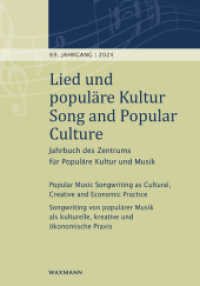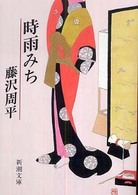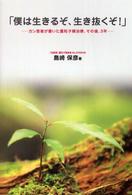- ホーム
- > 洋書
- > 英文書
- > Literary Criticism
基本説明
This is the second volume in the 20-volume set. It includes 114 poems (104 tanka, ten chōka), traditionally considered to be the zōka genre, although some of them can be classified as banka, since they deal with death and sorrow. The poems in this volume were composed between AD724 and 733, most of the poems were written by Yamanoue-no Okura (AD660-733), who was possibly a Korean from Kudara, or at least a descendant of Kudara immigrants to Japan. The spelling system in this volume is predominantly phonographic.
Full Description
This is the second volume to be published in the 20-volume set. It includes 114 poems (104 tanka, ten choka), traditionally considered to be the zoka genre, although some of them can be classified as benka, since they deal with death and sorrow. It also contains two poems in Chinese.
The volume has several long introductions (all written in Chinese) to the poems that follow. All the poems in this volume were composed between AD 724 and 733, which represents a much greater homogeneity in comparison to books one to four. Most of the poems were written by Yamanoue-no Okura (AD660-733), one of the greatest Man'yōshū poets, who was possibly a Korean from Kudara (Paekche), or at least a descendant of Kudara immigrants to Japan.
The spelling system in this volume is predominantly phonographic, with only a few exceptions. In addition, the spelling system appears to reflect Early Western Old Japanese, as demonstrated by Bentley (1997, 2002). The same can be said about its overall grammatical features.








